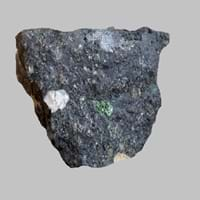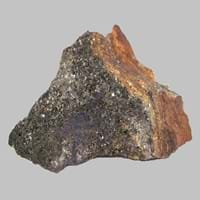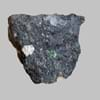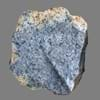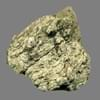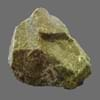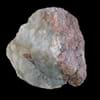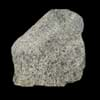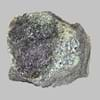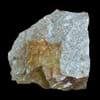Definition
Kimberlite is a rare, blue-tinged, coarse-grained intrusive igneous rock, which sometimes contains diamonds and is mostly found in South Africa and Siberia.
Hornfels is a metamorphic rock formed by the contact between mudstone or other clay rich rock, and a hot igneous body, and represents a heat altered equivalent of the original rock
Origin
Kimberley, South Africa
New Zealand
Discoverer
Unknown
Unknown
Etymology
From Kimberley + -ite, from the name of the South African town of Kimberley where the rock was first found.
From German which means hornstone
Class
Igneous Rocks
Metamorphic Rocks
Sub-Class
Durable Rock, Hard Rock
Durable Rock, Soft Rock
Group
Volcanic
Not Applicable
Other Categories
Coarse Grained Rock, Fine Grained Rock, Opaque Rock
Fine Grained Rock, Opaque Rock
Texture
Porphyritic
Granular, Platy
Color
Black, Bluish - Grey, Brown, Dark Greenish - Grey, Green, Grey
Brown, Dark Greenish - Grey, Green, Reddish Brown
Durability
Durable
Durable
Appearance
Dull and Banded
Dull
Interior Uses
Countertops, Decorative Aggregates, Homes, Interior Decoration
Decorative Aggregates, Flooring, Homes, Interior Decoration
Exterior Uses
As Building Stone, Paving Stone, Garden Decoration
As Building Stone, As Facing Stone, Garden Decoration, Office Buildings, Paving Stone
Other Architectural Uses
Curbing
Curbing
Construction Industry
As a Flux in the Production of Steel and Pig Iron, As a Sintering Agent in Steel Industry to process Iron Ore, As Dimension Stone, Cement Manufacture, for Road Aggregate, Making natural cement, Manufacture of Magnesium and Dolomite Refractories
for Road Aggregate, Roadstone
Medical Industry
Taken as a Supplement for Calcium or Magnesium
Not Yet Used
Antiquity Uses
Artifacts, Monuments, Sculpture, Small Figurines
Artifacts, Monuments
Commercial Uses
An Oil and Gas Reservoir, As a Feed Additive for Livestock, Gemstone, Metallurgical Flux, Production of Lime, Soil Conditioner, Source of Magnesia (MgO)
Cemetery Markers, Commemorative Tablets, Creating Artwork
Types
Basaltic Kimberlites and Micaceous Kimberlites
Biotite hornfels
Features
Always found as volcanic pipes over deep continental crust, Host rock for Diamond, Is one of the oldest rock, Surfaces are often shiny
Smooth to touch
Archaeological Significance
Famous Monuments
Data Not Available
Data Not Available
Sculpture
Used
Not Yet Used
Famous Sculptures
Data Not Available
Not Applicable
Pictographs
Not Used
Used
Petroglyphs
Not Used
Used
Figurines
Used
Not Yet Used
Formation
Kimberlite is an igneous rock and is the main source of diamonds. Its formation takes place deep beneath the Earth’s surface between 150 to 450 kilometres, and are erupted rapidly and violently.
Due to change in environmental conditions, rocks are heated and pressurized deep inside the Earth's surface. Hornfels is formed from the extreme heat caused by magma or by the intense collisions and friction of tectonic plates.
Mineral Content
Garnet, Olivine, Phlogopite, Pyroxene
Andalusite
Compound Content
Aluminium Oxide, NaCl, CaO, Iron(III) Oxide, FeO, Potassium Oxide, MgO, MnO, Sodium Oxide, Silicon Dioxide, Titanium Dioxide
Fe, Mg
Types of Metamorphism
Burial Metamorphism, Cataclastic Metamorphism, Contact Metamorphism, Hydrothermal Metamorphism, Impact Metamorphism, Regional Metamorphism
Not Applicable
Types of Weathering
Biological Weathering, Chemical Weathering, Mechanical Weathering
Biological Weathering
Types of Erosion
Chemical Erosion, Coastal Erosion, Glacier Erosion, Sea Erosion, Water Erosion, Wind Erosion
Chemical Erosion, Glacier Erosion, Sea Erosion, Water Erosion, Wind Erosion
Grain Size
Fine to Coarse Grained
Fine Grained
Fracture
Conchoidal
Conchoidal
Porosity
Very Less Porous
Highly Porous
Luster
Subvitreous to Dull
Shiny
Compressive Strength
Not Available
Cleavage
Conchoidal
Perfect
Toughness
Not Available
Not Yet Found
Specific Gravity
2.86-2.87
3.4-3.9
Transparency
Translucent to Opaque
Opaque
Density
2.95-2.96 g/cm3
0.25-0.30 g/cm3
Resistance
Heat Resistant, Impact Resistant
Heat Resistant, Impact Resistant, Pressure Resistant
Deposits in Eastern Continents
Asia
Russia
Bangladesh, Bhutan, China, India, North Korea, Qatar, Russia, Saudi Arabia, South Korea, Thailand
Africa
Angola, Botswana, Cameroon, Ethiopia, South Africa
Cameroon, East Africa, Tanzania, Western Africa
Europe
England, Hungary, Iceland, United Kingdom
United Kingdom
Others
Antarctica
Not Yet Found
Deposits in Western Continents
North America
Canada, USA
Canada, USA
South America
Argentina, Colombia, Ecuador
Bolivia, Brazil, Colombia, Ecuador
Deposits in Oceania Continent
Australia
New South Wales, New Zealand, South Australia, Western Australia
New South Wales, New Zealand, Queensland, Western Australia
All about Kimberlite and Hornfels Properties
Know all about Kimberlite and Hornfels properties here. All properties of rocks are important as they define the type of rock and its application. Kimberlite belongs to Igneous Rocks while Hornfels belongs to Metamorphic Rocks.Texture of Kimberlite is Porphyritic whereas that of Hornfels is Granular, Platy. Kimberlite appears Dull and Banded and Hornfels appears Dull. The luster of Kimberlite is subvitreous to dull while that of Hornfels is shiny. Kimberlite is available in black, bluish - grey, brown, dark greenish - grey, green, grey colors whereas Hornfels is available in brown, dark greenish - grey, green, reddish brown colors. The commercial uses of Kimberlite are an oil and gas reservoir, as a feed additive for livestock, gemstone, metallurgical flux, production of lime, soil conditioner, source of magnesia (mgo) and that of Hornfels are cemetery markers, commemorative tablets, creating artwork.
